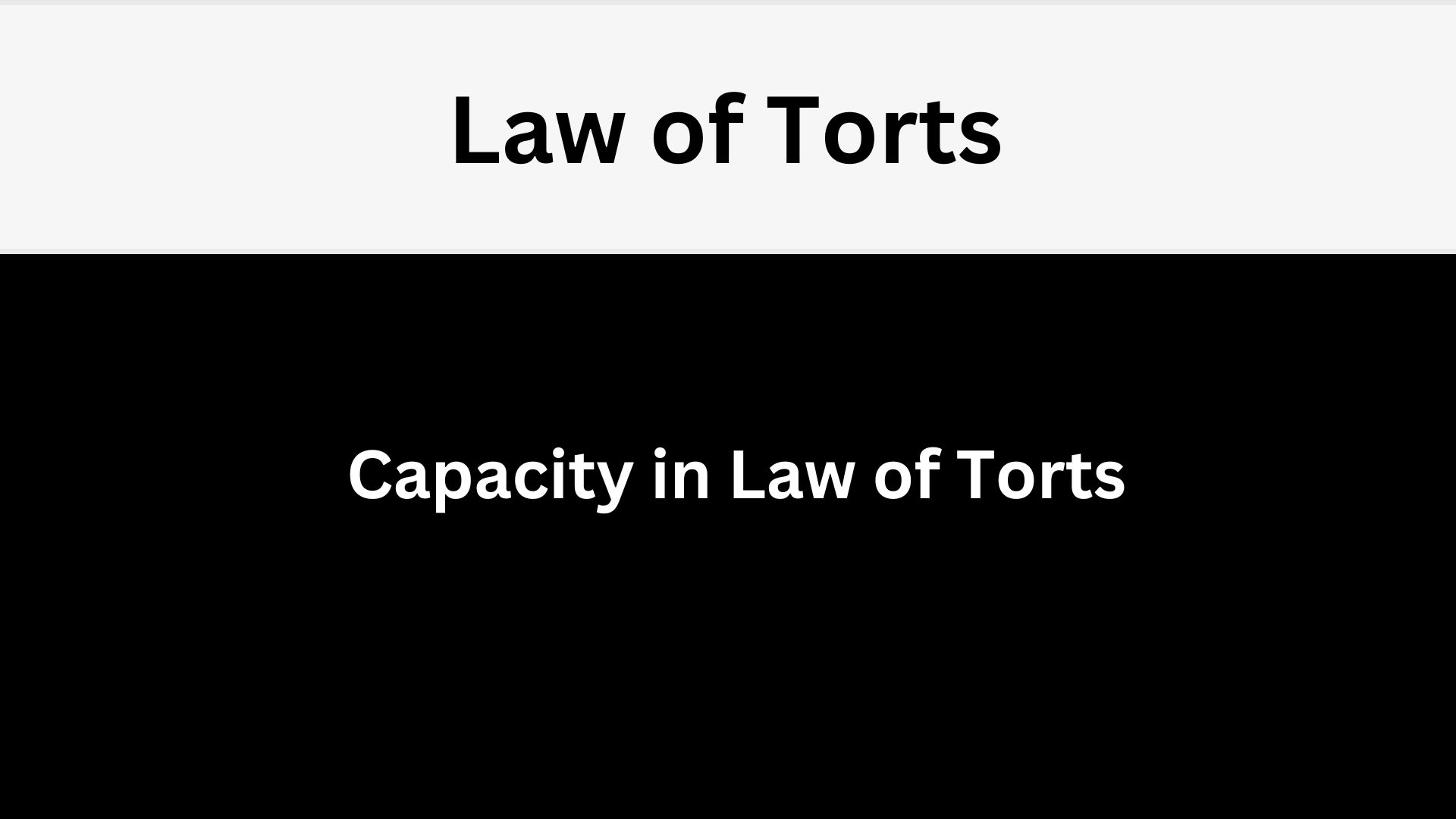In the context of tort law, “capacity” refers to the ability of a person to be a party to a lawsuit, either as a plaintiff (the person bringing the lawsuit) or as a defendant (the person being sued). This concept is crucial because certain individuals or entities may have limitations or special considerations regarding their capacity to sue or be sued.
Categories of Capacity
Minors (Infants)
- Definition: Persons below the age of 18 years.
- Capacity to Sue: Minors can sue through a guardian or next friend. They cannot sue on their own.
- Capacity to be Sued: Minors can be sued, but any judgment or decree against them cannot be executed unless it is shown to be for their benefit.
Persons of Unsound Mind
- Definition: Persons who are unable to understand the nature of their actions due to mental illness or incapacity.
- Capacity to Sue: Such individuals can sue through a guardian or next friend.
- Capacity to be Sued: They can be sued, but any proceedings against them must be conducted with the appointment of a guardian ad litem (a guardian for the lawsuit).
Corporations and Companies
- Definition: Legal entities created by statute or registration.
- Capacity to Sue: Corporations can sue in their own name for any tort that causes them damage.
- Capacity to be Sued: They can be sued for torts committed by their agents or employees in the course of employment.
Government and Public Authorities : Law of torts capacity
- Capacity to Sue: The government can sue for torts affecting public property or interest.
- Capacity to be Sued: The government can be sued for torts committed by its servants, subject to certain immunities and procedural requirements.
Married Women : Law of torts capacity
- Capacity to Sue: A married woman can sue in her own name without her husband’s consent.
- Capacity to be Sued: She can be sued independently for any tort she commits.
Aliens and Foreign Sovereigns
- Aliens: Persons who are not citizens of India. They can sue and be sued in Indian courts, subject to certain restrictions.
- Foreign Sovereigns: Generally enjoy immunity from being sued in Indian courts unless they waive this immunity.
| Category | Capacity to Sue | Capacity to be Sued |
|---|---|---|
| Minors (Infants) | Can sue through a guardian or next friend | Can be sued, judgment must benefit the minor |
| Persons of Unsound Mind | Can sue through a guardian or next friend | Can be sued with a guardian ad litem appointed |
| Corporations and Companies | Can sue in their own name | Can be sued for torts by agents/employees |
| Government and Public Authorities | Can sue for torts affecting public interest | Can be sued, subject to immunities and procedures |
| Married Women | Can sue in her own name | Can be sued independently |
| Aliens | Can sue in Indian courts, subject to restrictions | Can be sued in Indian courts, subject to restrictions |
| Foreign Sovereigns | Typically immune, unless immunity is waived | Typically immune, unless immunity is waived |

